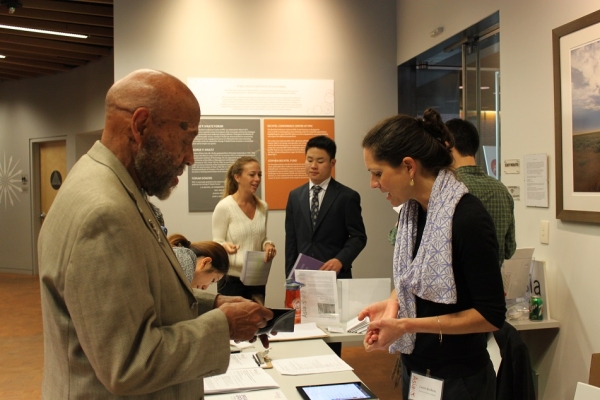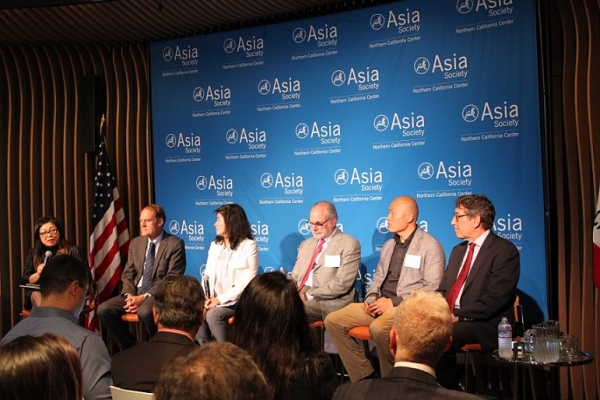Breaking Ground: Chinese Investment in U.S. Real Estate (San Francisco)
On May 24, 2016, Asia Society Northern California convened a high-level panel to launch our new report, “Breaking Ground: Chinese Investment in U.S. Real Estate.” The sold-out event featured speakers from wide-ranging backgrounds: Arthur Margon, a partner at Rosen Consulting Group, one of the report authors; Darlene Chiu Bryant, Executive Director of ChinaSF; Zhengyu Huang, Chairman and Founder, ImmCapital; Li Chen, Chief Financial Officer, Oceanwide Center LLC, a Chinese developer; Alan Pomerantz, Senior Counsel, Pillsbury LLP; and Sean Randolph, Senior Director, Bay Area Council Economic Institute.
Mr. Margon began the program with a discussion of the highlights of the report. He noted that Chinese nationals are now the biggest foreign buyers of American homes, purchasing homes valued at $93 billion in the past five years, including $28.6 billion in 2015 alone. Commercial property purchases have surged as well, to $8.5 billion last year, a 15-fold increase from 2010. And, at nearly $208 billion, China is the biggest foreign holder of U.S.-government-backed real estate bonds.
His presentation was followed by a panel discussion, which covered the differences between Chinese investment now and Japanese investment in the 1980s; the role of the EB-5 program in investment; and what the United States can do to promote Chinese investment.
Zhengyu Huang commented that Chinese investment is characterized by “long-term strategic investing coupled with momentum driven investment” and Alan Pomerantz noted that one barrier to entry is the complex web of U.S. laws. Mr. Huang predicted that despite some challenges for Chinese investors, they see the United States as a long-term destination, and in 2-3 years, will be much more savvy and well-educated investors.
For more information on Breaking Ground: Chinese Investment in U.S. Real Estate, please visit AsiaSociety.org/ChinaRealEstate.


